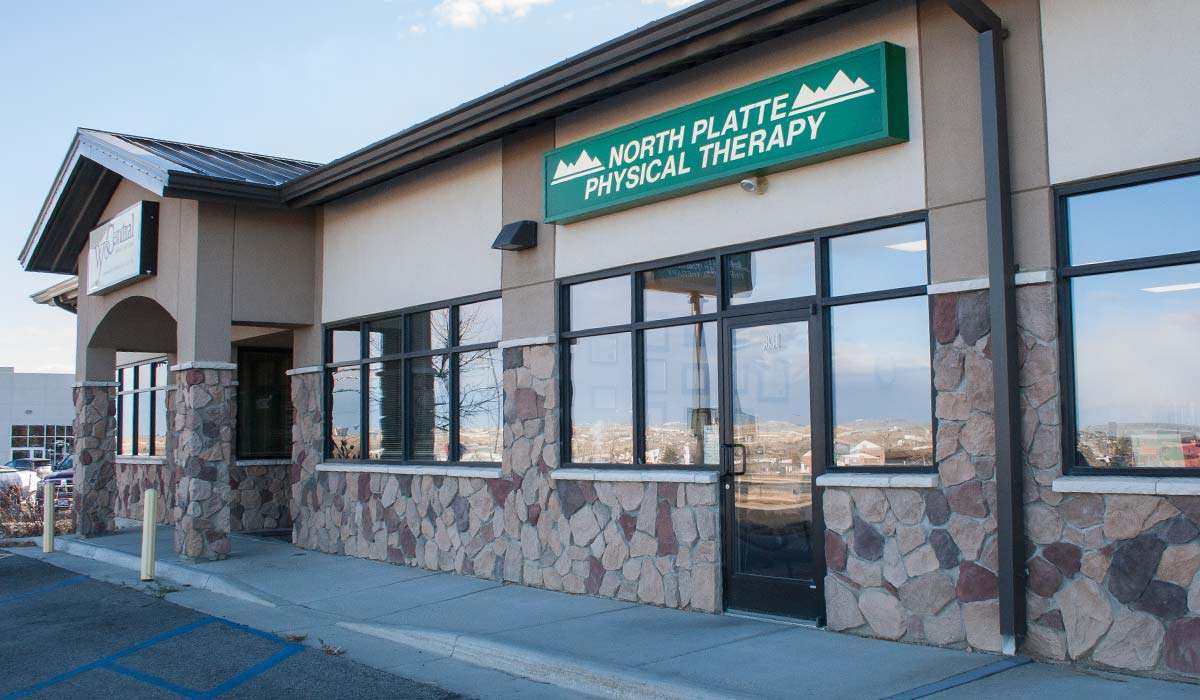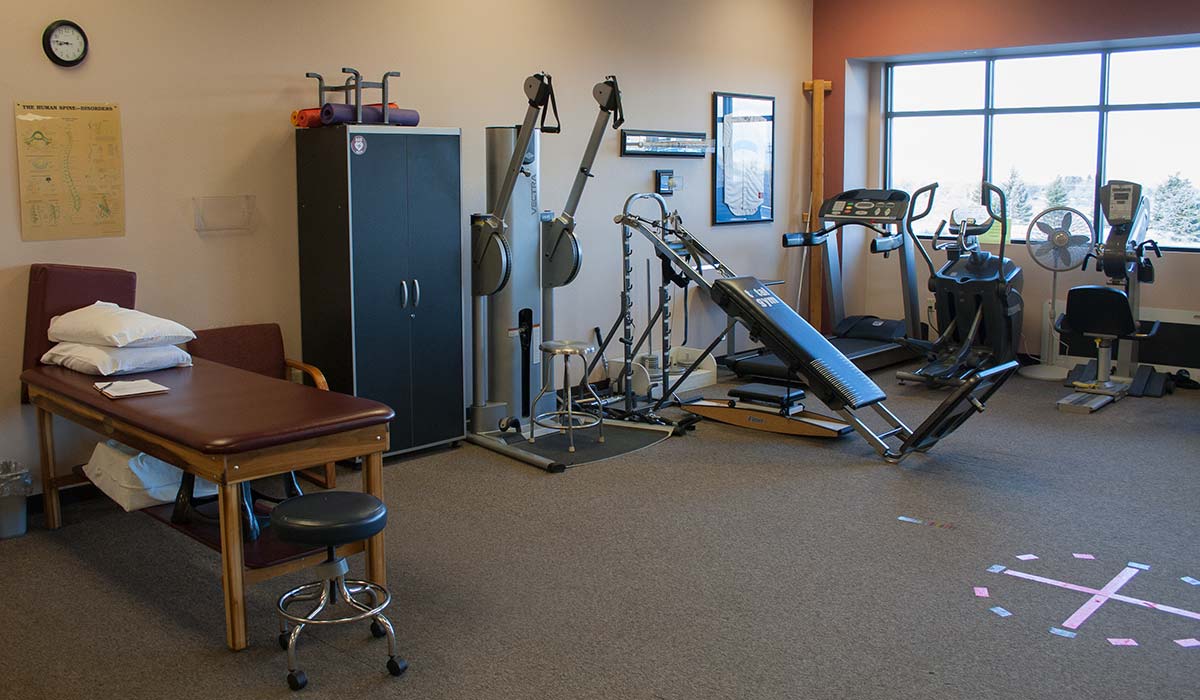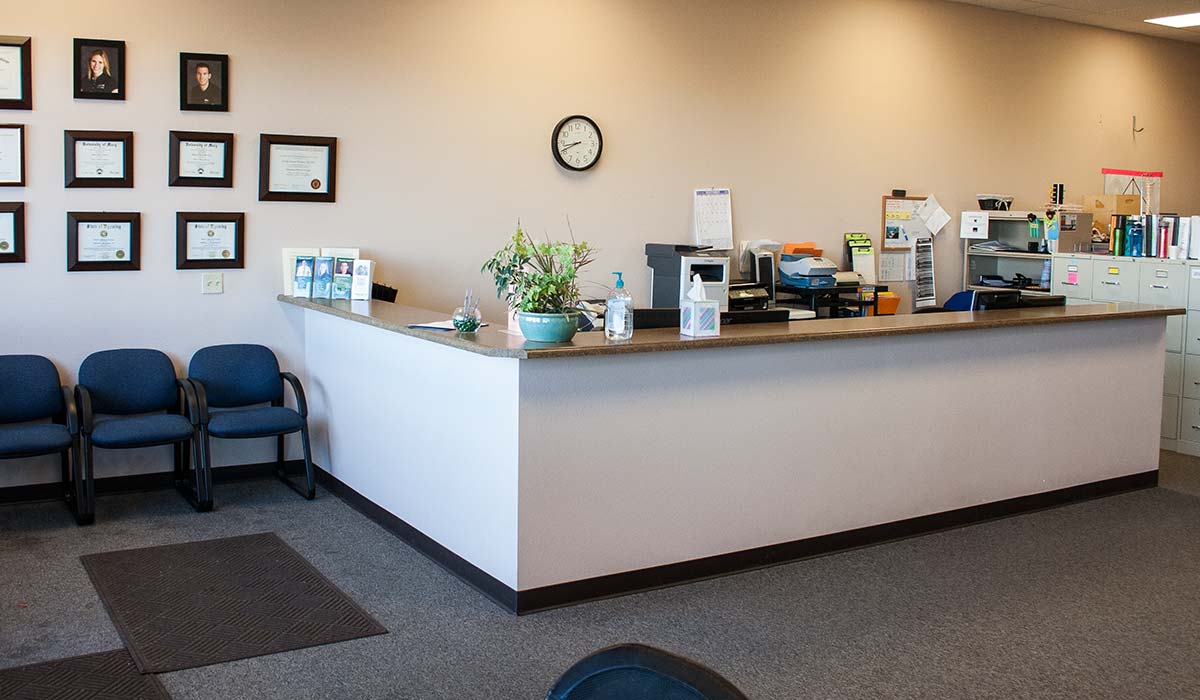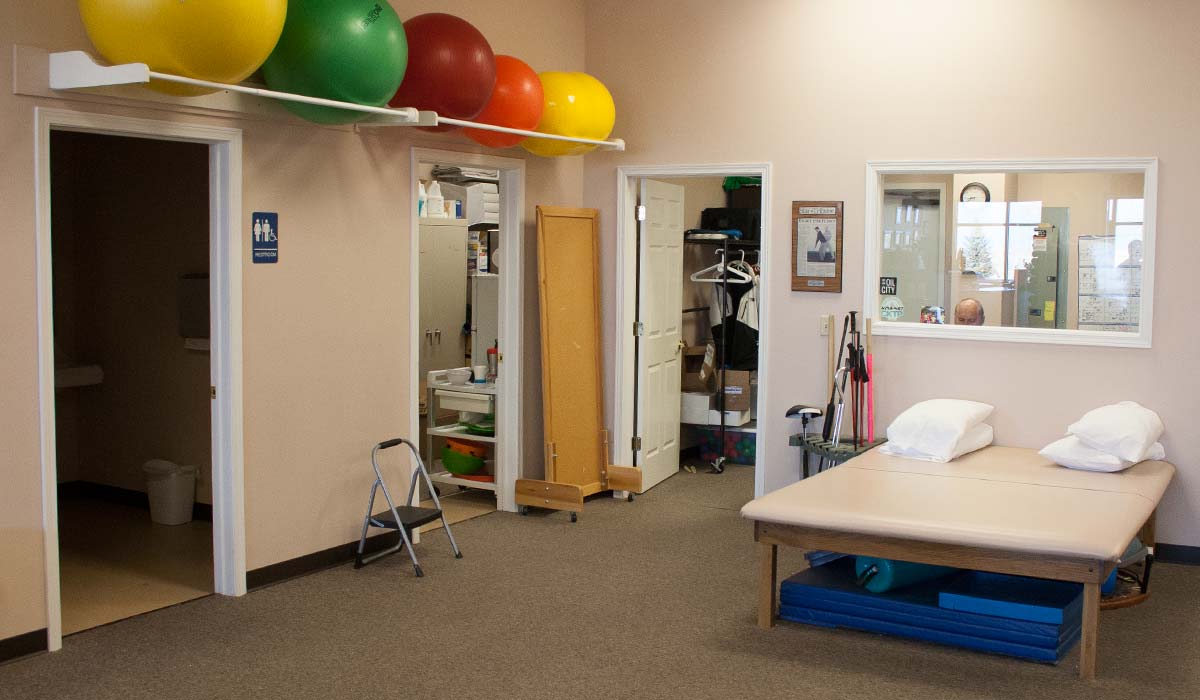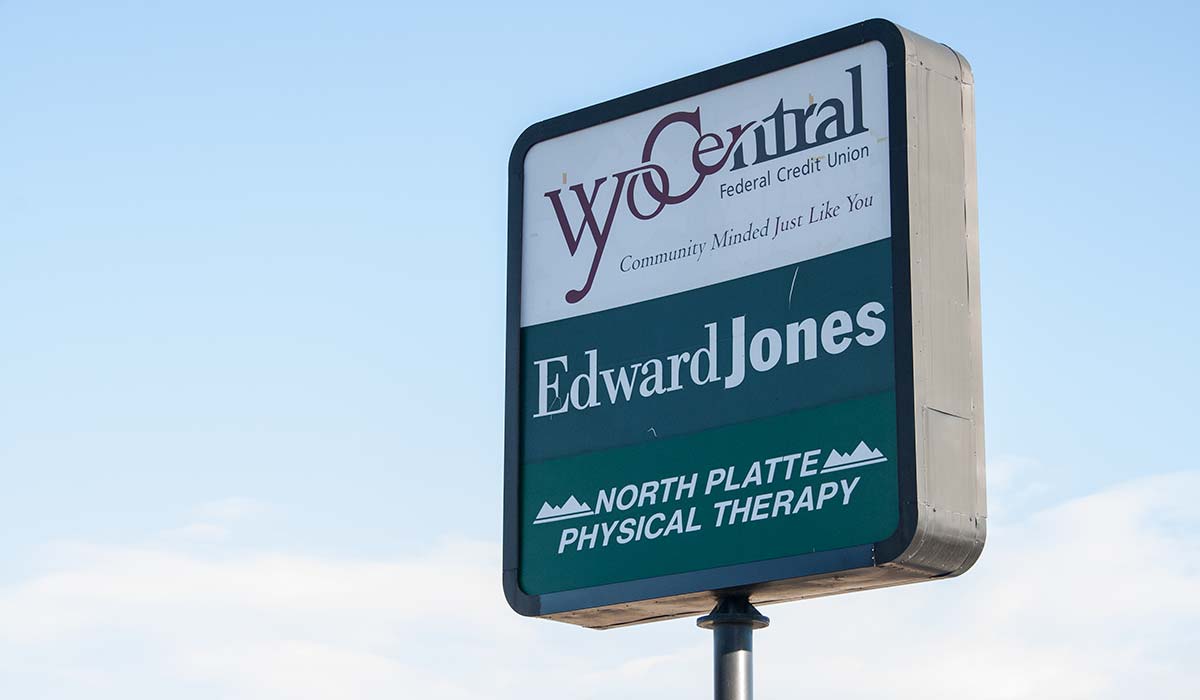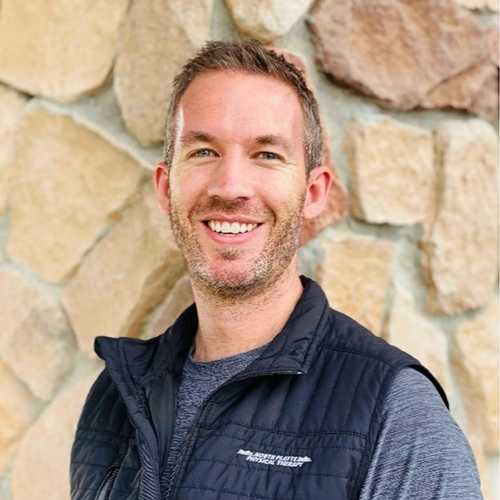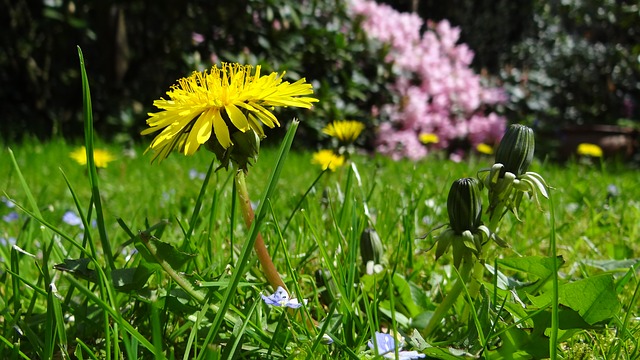North Platte Physical Therapy - Casper (West)
The Casper West clinic has been serving the needs of the surrounding community since 2010. This clinic along with our Casper East clinic continually strives to exceed the expectations of our patients. Our clinics are patient-focused and allow our patients to collaborate with their therapist on the optimal care for each individual. We provide this peak level of care in an energetic and enjoyable atmosphere.
We are dedicated to providing the best orthopedic care to central Wyoming. Our staff specializes in spine and extremities. We use multiple manual therapy and exercise treatment philosophies and techniques for treating back, muscle, joint, nerve and tendon disorders. North Platte Physical Therapy provides comprehensive physical and occupational therapy services to our orthopedic, pediatric, and geriatric patients. We have an excellent functional balance re-training program and fall prevention program. We also work with athletes and sports medicine patients.
Location Details
Address: 3831 Denis Drive #200, Casper, WY 82604
Hours: Mon - Fri 8AM - 5PM
Fax: 307-234-9074
Interested in scheduling at our East location? View Casper East Details
Services Offered
- Arthritis Pain
- Back Pain
- Back School Presentations
- Balance and Vestibular Rehab
- Biofeedback
- Biomechanical Gait Analysis
- Body Mechanics Training
- Chronic Pain
- Cupping Therapy
- Custom Foot Orthotics
- Custom Splinting
- Ergonomic and Worksite Evaluation
- Fine Motor Dexterity
- Golf Swing Analysis
- Graston Techniques
- Hand Therapy
- Headache
- Kinesio taping
- Modalities
- Myofacial Techniques
- Neck Pain
- Neurological Services
- Orthopdedic Clinical Specialist, OCS
- Orthopedic Service
- Pediatric Therapy
- Pool Therapy
- Post Cancer Treatment
- Pre/Post Surgical Rehab
- Return to sport exercise programs
- Running Injuries
- Self-care skills
- SFMA - Selective Functional Movement Assesment
- Spine Care
- Sports Medicine
- Stroke Rehabiliation
- Tendonitis
- TMJ
- Torticollis
- Trigger Point Dry Needling
- Vestibular Rehabiliation
- Women's Health
- Work Hardening/Conditioning
- Work Injuries
- Wound Care
Latest News & Info
Physical Therapy in Casper WY Can Help You Learn to Use Walking Aids
March 1, 2017
Adjust the height.
Walking aids need to be adjusted to fit your body before you begin to use them. First, take a look at the height. The top of your walking aid should be the height of your wrists when you are upright with your arms straight by your side. If it’s not at this level, you will need to adjust it. If you don’t, you could strain yourself while using your walking aid, causing pain in your wrists and arms. Also, when you reach your arm out to grip the walking aid, make sure you keep a slight bend in your elbow.Straighten your back.
It may be tempting to lean into your walking aid so it supports the majority of your body weight, but don’t do this. Keep your back straight instead of hunched over when using a cane or walker. Hunching over a walking aid will promote bad posture and will eventually lead to pain in your shoulders, upper and lower back.Hold the cane in the opposite hand.
Does it matter which hand grips your cane? Yes! Which side of your body are you experiencing pain or weakness in? If it’s your left side, then hold the cane with your right hand. This may not seem right at first. After all, shouldn’t you support the side that is weaker? No! By holding a cane with the hand opposite of your weak side, you are shifting your body weight into your stronger side instead of pushing it all to the side that is injured or weak. Learn how to choose the right cane.Check the rubber bottoms.
Walking aids are designed with thick rubber bottoms that prevent slips. But over time, these rubber bottoms begin to wear down. Some may even fall off if the walking aid is old. Without them, your walking aid is not as effective in keeping you safe, so it’s important to check them on a regular basis to ensure they are intact. If you notice that they are beginning to wear down, or if the bottoms are uneven on your walker, purchase replacements as soon as possible to protect yourself.At North Platte Physical Therapy, we’re dedicated to helping our clients learn how to properly use walking aids to prevent falls. But accidents happen, so if you do injure yourself during a fall, contact North Platte Physical Therapy to learn more about how we can help you recover. Our staff is praised throughout the Wyoming and Nebraska areas for our commitment to our clients. We can fulfill comprehensive physical therapy services, and would be happy to customize a treatment plan for your personal needs.
Physical Therapist in Casper WY Discusses Proper Running Technique
Stop when you feel pain.
There’s a difference between pain and soreness. The former is a sign that something is injured, while the latter indicates you are training hard and building new muscle. Contrary to popular belief, it is not wise to push through the pain during a run. If you feel actual pain, it’s recommended that you stop running and try to stretch out the sore area to see if it helps. If stretching does not alleviate the pain, call it quits.
Stay focused.
Some runners zone out during a long run so they can clear their heads and forget about how much longer they have left on the trail. This may be a great way to push yourself to go further, but it’s not wise if you want to prevent injuries. Runners should stay focused throughout the entire run so they can be mindful of their bodies. Check in with your form throughout the run and make adjustments as needed. For example, if you hear that the sound of one foot hitting the pavement is louder than the other, you may need to adjust your body to evenly distribute your weight into both sides. Here are 5 ways to focus better during your run.
Shorten your stride.
Did you know? Knee injuries are the most common type of injuries sustained by runners. One type of knee injury is caused when you extend your legs too far out as you run. When this happens, your legs take on too much stress and your knees may become injured as a result. Avoid this common injury by shortening your stride so you don’t overextend your legs.
Choose the right footwear.
If you’ve ever walked into an athletic apparel store, you’ve seen that there are different types of athletic shoes designed for every type of activity. There’s a reason for this. Runners need different support than tennis or basketball players, for example, so you will need to choose a shoe that is designed specifically for running. Try on a few to see which design is right for your feet. The right running shoes will ensure your feet get the support they need to carry you on long runs—just make sure they fit properly and won’t cause you any discomfort.
At North Platte Physical Therapy, we’re dedicated to helping clients prevent injuries, but if you are already injured, let us help you on your road to recovery. For more information, contact North Platte Physical Therapy to learn more about how we can help you live a healthier life. Our staff is praised throughout the Wyoming and Nebraska areas for our commitment to our clients. We can fulfill comprehensive physical therapy services, and would be happy to customize a treatment plan for your personal needs.
Physical Therapist in Casper WY Explains How to Avoid Injuries While Gardening
Stretch before and after.
Even though gardening is not a strenuous exercise, it does involve putting your body in uncomfortable positions, so it’s recommended that you stretch before and after the activity. Do gentle back bends and leg stretches to loosen the muscles in your lower body and prepare yourself for gardening.
Change positions.
Be mindful of how long you stay in one position so your body doesn’t begin to cramp or get sore. Set a timer on your phone or make it a point to adjust your position after every 10-15 minutes. Even if it’s a slight adjustment, it will help you prevent muscle stiffness, which will lead to aches and pains long after you have finished gardening.
Buy gardening pads.
Kneeling in the dirt can cause a great deal of discomfort. To avoid feeling this pain days later, buy a pair of knee pads designed for people who garden. This will put a cushion between your knees and the dirt, so you can sit comfortably and enjoy gardening.
Use a wheelbarrow.
Don’t try to carry heavy tools or bags of soil or mulch on your own—instead, use a wheelbarrow. But, you must operate the wheelbarrow properly in order to avoid aches and pains. Always keep your back straight when pushing a wheelbarrow, and if you have to strain to get the wheelbarrow to move, it’s too heavy for you. Take something out and try it again instead of putting yourself at risk of an injury.
Don’t bend your wrist upwards.
You may think your back and your knees are the only body parts that can be injured during gardening, but that’s not the case. You also need to be careful about how you bend your wrists while gardening. You should never bend your wrists upwards when pulling weeds or using any of your gardening tools. Keep your wrists straight and in line with your forearm at all times, and if you do have to pull something, use your biceps and shoulders instead.
At North Platte Physical Therapy, we’re dedicated to helping clients prevent injuries and live a pain-free life. But if you do injure yourself, contact North Platte Physical Therapy to learn more about how we can help you recover. Our staff is praised throughout the Wyoming and Nebraska areas for our commitment to our clients. We can fulfill comprehensive physical therapy services, and would be happy to customize a treatment plan for your personal needs.
